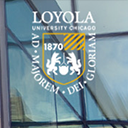An Innovative Nursing Orientation Program
Nature and scope of the project
The program aimed to enhance professional development, integrate technology, cultivate leadership, improve nurse retention, foster quality and safety practices, prepare nurses for workplace violence, and create cultural change agents to drive transformative healthcare practices. A key objective was the leadership involvement in training, where experienced leaders actively mentored new nurses, instilling leadership qualities and fostering confidence.
Synthesis and analysis of supporting literature
High turnover rates remain a significant challenge in U.S. healthcare, with hospital turnover rates at 20.7% in 2023 despite a 2% improvement from 2022. Registered nurse (RN) turnover has improved by 4.1%, reaching 18.4%, but is still critical among RNs with less than one year of experience at 34%. The average cost of turnover has increased by 7.5%, reaching $56,300. Contributing factors include dissatisfaction with care quality, inadequate leadership, poor well-being, staffing shortages, undervaluation, and low salaries. At Cook County Health Stroger Hospital, a Comprehensive and Innovative Nursing Orientation Program was implemented to address these challenges, focusing on clinical competency, resilience, and interprofessional collaboration.
Project implementation
In 2023, 10 new nurses—a mix of recent graduates and experienced hires—participated in the program. Participants were divided into small cohorts for a structured orientation that included three weeks of direct training with a nurse manager, followed by an experienced preceptor. Leadership involvement was integrated throughout the training, where nurse leaders provided guidance and feedback, making a significant difference in shaping nursing skills and promoting a culture of excellence. Orientation durations were 12 weeks for new graduates and 8 weeks for experienced hires, with weekly follow-ups. Nurses managed 2-3 patients in their first week, leveraging prior training in policies and charting. The program covered 18 areas, including clinical skills, leadership, quality improvement, patient safety, and emotional intelligence. Training methods included case studies, group discussions, audits, and real-time feedback.
Evaluation criteria
After one year, all 10 participants completed a survey assessing the program's long-term impact.
Outcomes
-
After one year, all 10 participants completed a survey assessing the program's long-term impact. Findings highlighted significant professional growth and organizational contributions:
-
20% earned promotions as support or charge nurses;
-
30% planned to earn certifications;
-
40% implemented their projects and will present at the regional conference;
-
50% enrolled in advanced nursing programs;
-
80% expressed leadership aspirations;
-
100% retention in medical-surgical units, with all participants expressing commitment to the organization.
Recommendations
The program highlights the value of mentorship, leadership development, and patient-cantered care in easing transitions into clinical practice, fostering engagement, and cultivating a culture of quality improvement. The active role of nurse leaders made a lasting impact on participants, empowering them to take on leadership roles and improve patient care. This program serves as a model for addressing turnover and empowering new nurses.
An Innovative Nursing Orientation Program


